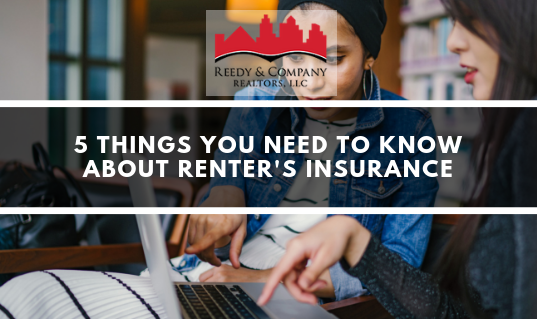Signing the lease for your new home is an exciting and busy time. There’s packing, changing your contact information, and of course, moving. Paying the first month’s rent and security deposit can leave you strapped for cash, but one thing you want to budget for is renter’s insurance. But what is renter’s insurance? What does it cover? Why do you need it?
1. What Renter’s Insurance Covers
Renter’s insurance protects your belongings if any of the following events happen to you.
- Vandalism
- Theft
- Fire
- Smoke
- Lightning strike
- Wind damage
- Water damage
2. What Renter’s Insurance Does Not Cover
Some natural disasters
Renter’s insurance does not cover every natural disaster. Earthquake and flood damage are not covered. However, you can purchase a separate policy if you are at risk for either of these events. For example, if you live on a fault line or a floodplain, you may want to invest in a separate policy for protection.
Pest damage
If your home is invaded by termites, the damage is not covered.
High-value items
Family heirlooms and jewels are not covered by general renter’s insurance. A floater or rider policy would cover those expensive items, however. You would need a rider on each item.
Terrorism or nuclear damage
This used to be covered before the terrorist attacks in 2001. However, basic renter’s insurance no longer covers this. You can buy a separate policy for terrorism and nuclear coverage if you feel you are at risk.
Your roommate’s possessions
If you have a roommate, they need to purchase their own policy. Your policy will only cover what you personally own.
3. What’s Included in Renter’s Insurance
Before you go out and buy renter’s insurance you want to understand what it covers. Understanding it will help you get the best policy for your needs.
Personal property coverage
This includes all your possessions inside the home. Things like your furniture and electronics are covered by renter’s insurance. Make sure you buy enough coverage for your home. Take inventory of your big-ticket items, then get the dollar values of these items. If you have expensive jewels, computers, or entertainment equipment, consider a floater policy. This will provide additional coverage for those items. If your job requires you to be a road warrior or if you like to travel, consider off-premises coverage. This protects your belongings if your car or hotel are broken into.
Liability coverage
This protects you should you get sued for something you’ve done related to the property. If your dog bites a delivery person and they sue, liability coverage would kick in. You want to have enough coverage to protect your assets should you get sued. Some landlords require you to carry liability renter’s insurance before they rent to you. If damage to the rental exceeds your security deposit, the owner will put a claim through your liability insurance.
Additional living expenses
What happens if your home is destroyed in a natural disaster? Additional living expenses coverage would come to the rescue. This would cover your hotel costs and living expenses until your home is rebuilt.
4. Homeowner’s Insurance versus Renter’s Insurance
Many people don’t buy renter’s insurance because the landlord has homeowner’s insurance. They think they are covered under that policy, but that is not the case. Homeowners insurance on rental property covers the property itself: the four walls and roof. You are responsible for your belongings if they are damaged due to theft, vandalism, water damage or any other covered scenario. It would be unwise not to buy renter’s insurance. Not having it may leave your bank account in the red if something were to happen.
5. Renter’s Insurance is Surprisingly Affordable
Some believe they can’t afford renter’s insurance. Frankly, you can’t afford not to have it. Depending on your provider and coverage it costs between $4 and $12 per month. You can bundle renter’s insurance into your life and auto insurance policies too.
Don’t leave your items unprotected. If you’re a renter, you need renter’s insurance. More specifically, you need a policy with the proper coverage for you. Do your research and talk with your agent. That way, if the worst does happen, you have one less thing to worry about.
Are you looking to rent or considering investing in rental property in Memphis? Let the experts at Reedy and Company help you. Our team works with both owners and tenants to ensure satisfaction for everyone. Contact us today.



